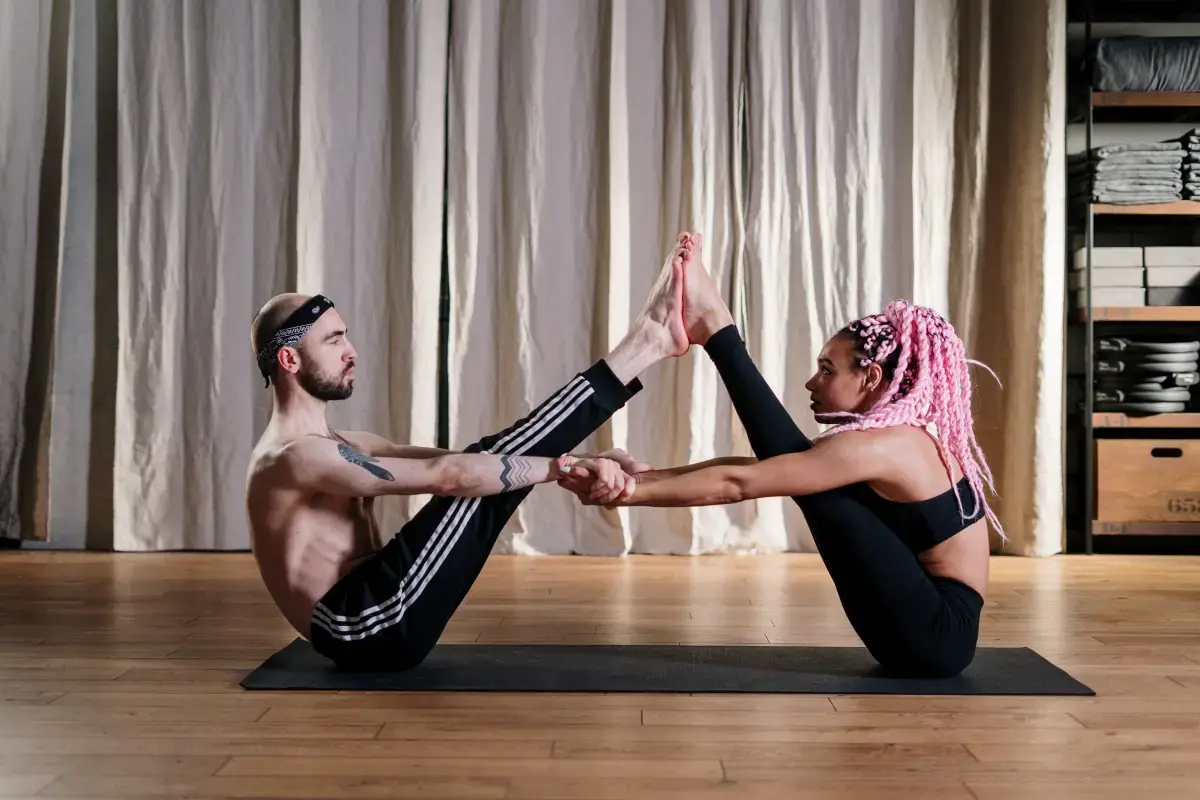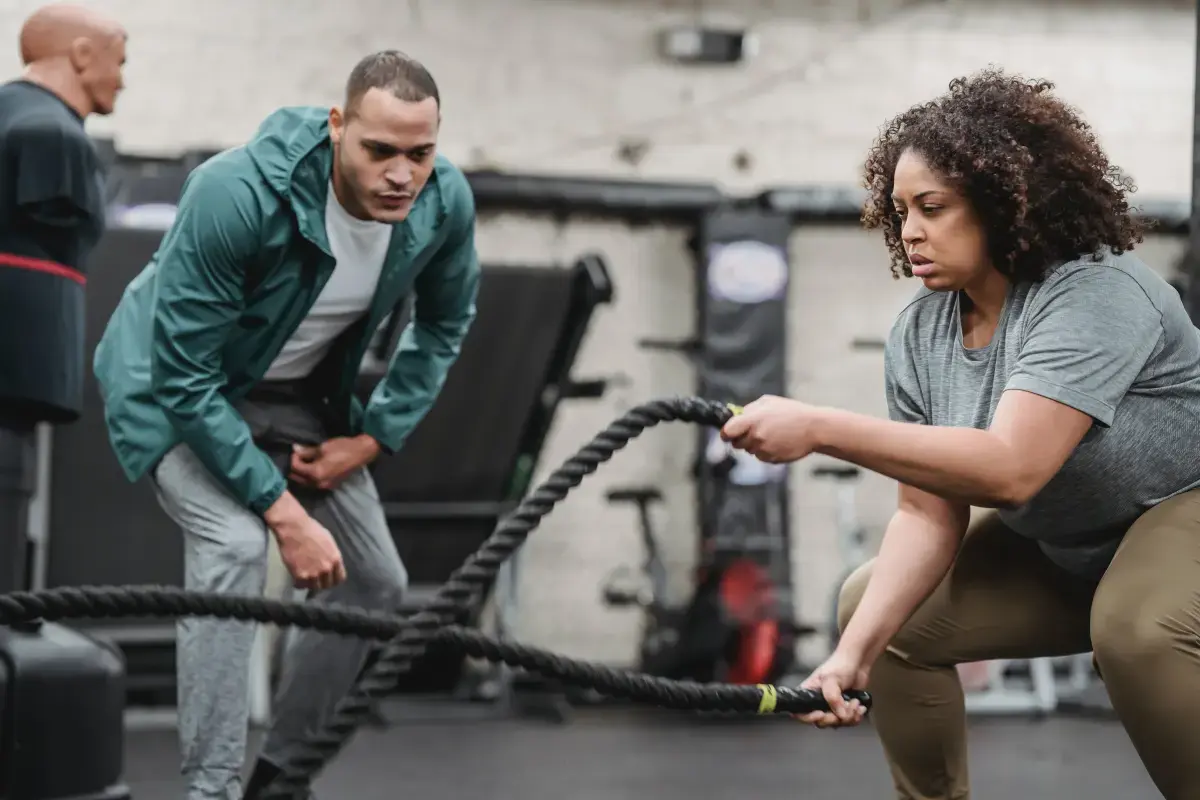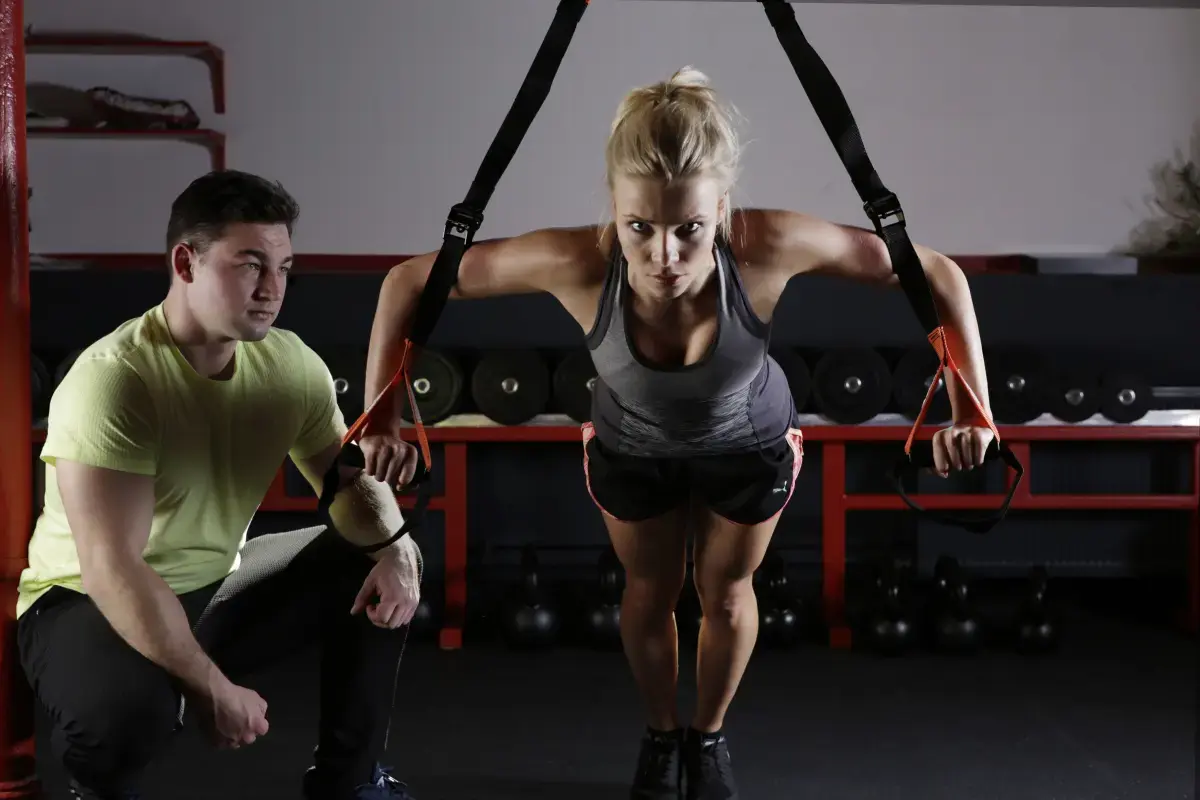
Personal Training Job Description
What is a Personal Training Professional?
A personal trainer is a fitness professional who helps people to achieve their health and fitness goals. A personal trainer typically works with clients one-on-one, although they may also work with small groups. Personal trainers assess their clients fitness levels, develop customized exercise programs, and provide motivation and support. A personal trainers job is to help their clients reach their fitness goals. This may involve providing instruction on proper exercise form and technique, helping to set realistic goals, and providing motivation and support.

What does a Personal Training Expert do?
Personal trainers may also conduct fitness assessments, design customized workout programs, and provide guidance on nutrition and lifestyle. Personal trainers typically work with clients one-on-one, although they may also work with small groups. In addition to working with clients in person, many personal trainers also work with clients online or over the phone.

What are the Skills of a Personal Training?
A personal trainer is an individual who has the knowledge, skills and ability to safely and effectively design and deliver exercise and physical activity programmes to improve health outcomes. They will also be able to provide advice on other related lifestyle factors such as nutrition, sleep and recovery. In order to be a successful personal trainer, it is essential that they have a thorough understanding of human anatomy and physiology, as well as how different exercises and activities can impact the body. They must also be knowledgeable in the area of injury prevention and be able to identify when someone is at risk of sustaining an injury.

What makes an Expert Personal Training?
It is also important that personal trainers have strong communication and interpersonal skills, as they will be working with a wide range of clients who will have different needs and goals. They must be able to motivate and encourage their clients, as well as provide feedback and support. In terms of practical skills, personal trainers must be competent in a range of different exercises and be able to adapt them to the needs of their clients. They should also be able to use a variety of equipment safely and effectively. Finally, personal trainers must be able to keep up to date with the latest research and developments in the field of exercise and fitness

What level of Experience & Qualifications are required to be a Personal Training?
Industry Experience: • 2-3 years of experience in the fitness industry, working with clients to help them reach their health and fitness goals. • Experience setting up exercise programs for different levels of physical activity. • Knowledge of anatomy and physiology as it relates to human movement and performance. Training: • Certified by a nationally recognized personal training program such as the American Council on Exercise (ACE), National Strength & Conditioning Association (NSCA) or National Academy of Sports Medicine (NASM). Qualifications: • Knowledgeable in nutrition counseling techniques, lifestyle modifications/behavior changes, weight loss strategies and stress management skills. • Ability to assess client’s current level of conditioning, identify areas needing improvement or strengthening exercises that are necessary for proper rehabilitation following an injury or illness. • Strong interpersonal communication skills including problem solving abilities along with good listening capabilities when interacting with clients from diverse backgrounds. Education Requirements: • Bachelors degree in Exercise Science/Kinesiology is preferred but not required; however any Associate Degree program related to Personal Training can be accepted if combined with significant hands-on experience under supervision from a qualified professional trainer within the past 3 years OR completion of an approved certification course may also qualify applicants without formal education requirements being met .

What is the Salary of a Personal Training?
The salary expectations of a personal trainer vary greatly depending on experience, qualifications and the location where they are working. At a junior level, new trainers may expect to earn an hourly rate ranging from around £15-20 per hour for those who have completed basic fitness qualifications such as Level 2 Gym Instructor or Level 3 Personal Trainer. With additional experience, this is likely to rise significantly over time in line with gaining more clients and further professional development courses. For experienced PTs with several years’ worth of industry knowledge under their belt, salaries can reach up to £50 per hour (or even higher). This also depends on whether the PT works independently or through an employer – if it’s the latter then there will usually be some kind of competitive salary structure in place which reflects seniority within that particular organisation/fitness centre. It could be anything from around £25k - 40k+. In addition to these figures many self-employed personal trainers often offer package deals based on number sessions booked by each client; offering discounts for larger packages purchased upfront can help you maximise your revenue overall so this should definitely form part of any pricing strategy you develop as well!

What are the Working Conditions for a Personal Training?
The working conditions for a personal trainer can vary greatly depending on the type of job they have. Generally, most trainers work in gyms and fitness centers where they interact with clients to provide tailored exercise programs and instruction. They may also be responsible for conducting assessments such as body fat testing or cardiovascular exercises tests, which could require specialized equipment like treadmills or stationary bikes. Working hours are usually flexible but many times include evening or weekend shifts as well as some holidays since people tend to look for more guidance during those periods when trying to stay fit. A typical day in the life of a personal trainer includes guiding clients through their daily workouts by demonstrating proper form and technique; motivating them throughout their session; providing feedback on progress made towards goals; creating diet plans that align with individual nutritional needs; developing innovative workout routines specific to each client’s abilities; monitoring safety practices at all times by ensuring machines are used properly and safely, etc.. In terms of salary expectations, it depends largely on geographic location (the cost of living), experience/education level achieved (certification) as well area expertise held (specialization).

What are the roles and responsibilities of a Personal Training?
Motivate clients
Set goals with clients
Develop training programs
Teach clients proper exercise form
Monitor client progress
Adjust programs as needed
Help clients stay on track
Encourage clients during workouts
Keep clients accountable
Cheer clients on
Be a positive role model
Promote healthy lifestyle habits
Educate clients on nutrition
Help clients with weight loss
Improve client fitness levels
Correct client posture
Prevent client injuries
Relieve client muscle soreness
Improve client flexibility
Boost client confidence.
Establishing trust and rapport with clients
Conducting initial fitness assessments
Designing customized fitness programs
Incorporating a variety of exercises and equipment
Modifying exercises to accommodate clients limitations
Progressively challenging clients to reach their goals
monitoring clients exercise form and technique
Correcting clients when they make errors
Encouraging clients to push themselves
Providing support and motivation
Adjusting clients programs as needed
Re-evaluating clients progress and goals
Helping clients stay motivated and committed
Dealing with clients questions and concerns
Explaining the rationale behind exercises and program design
Building relationships with clients
Promoting healthy lifestyle habits
Referring clients to other health professionals as needed
Keeping up with current trends in the fitness industry
Continuing education to maintain certification

Where can I find Personal Training jobs?
- Create a profile on gigexchange and promote your Personal Training skills to advertise you are Open to New Work Opportunities
- Ensure your Resume (or CV), or online work profile is up to date and represents your skills and experience. Ensure your reputation reflects your ability & attitude.
- Apply for Personal Training Jobs advertised on gigexchange.
- Practise Personal Training interview techniques to ensure you represent your personality and ability succinctly and confidently.
- Accept the job offer if the salary meets your expectations and the employer mission and purpose reflects your core values.
Jobs
What are the best job boards for Personal Trainer jobs?

How can I hire Personal Training staff online for my business?
The best job board for recruiting Personal Training experts is gigexchange.com. Advertise full-time, part-time or contract jobs to find, hire & recruit trusted, experienced and talented Personal Training candidates near you.

Are Personal Training roles in demand in 2026?
Personal Training experts are still in high demand in 2026. If you are an experienced Personal Training or looking to train and become one. The job market is looking strong for Personal Training jobs near me.